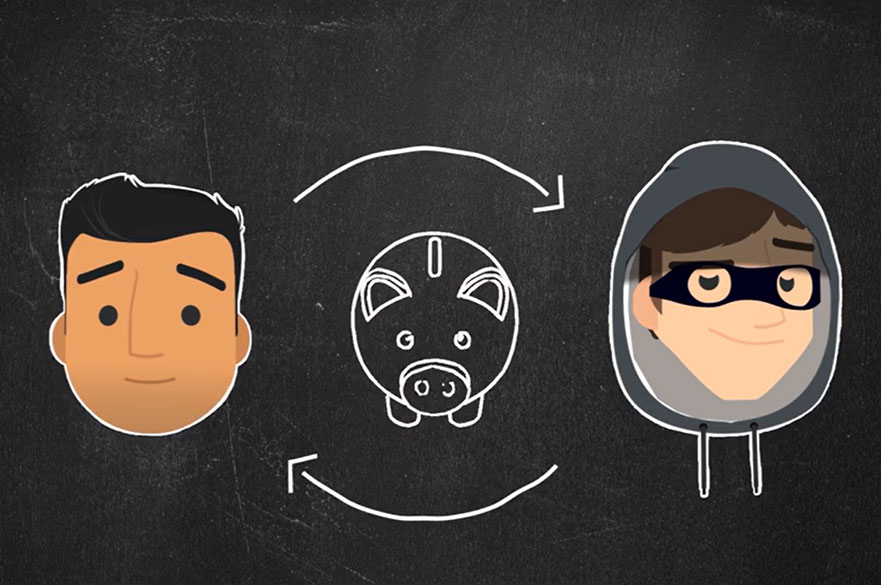Watch out for the money muling scam
Published: 06/03/2024
Students are often targeted by the money mule scam, so it’s good to know how you can protect yourself and be vigilant online.
What is a money mule?
Money mules are recruited, sometimes unwittingly, by criminals to transfer illegally obtained money between different bank accounts. This is a form of money laundering which is illegal, so those recruited to be money mules are complicit in a serious crime.
Six out of ten money mules are under 30 years old. Most are recruited between the ages of 17 and 24 – either online, in person, or even through friends and family.
Click the image to watch our video and find out more:

How does a money muling scam work?
Students will usually be approached by someone online. They will say they are unable to pay cash into their own account and ask you to pay the cash into your account and transfer it to one of theirs electronically. They will then give you a cut of the money as payment and will try to encourage you to continue doing this work for them.
Now that they have made you commit a crime, they have leverage over you to continue acting as a money mule.
How to spot the signs and avoid becoming a money mule
- Be suspicious of job adverts or messages that offer the chance to earn quick and easy money. Stick to reputable job listings.
- Be cautious with any job offers from overseas.
- Do not sign up or proceed with any opportunity without undertaking research on the person, company or opportunity. Speak to the NTU Employability team if you need advice.
- Do not engage with any social media posts offering large sums of money. Instead, report them.
- Don’t share bank and personal details with anyone you don’t know or trust.
Those involved or caught being a money mule are likely to find their bank account closed and will find it difficult to open another account. They may also face a long prison sentence!
If you, or someone you know, has been approached to be a money mule – break off all contact, don’t receive or move any money and ask for advice from someone you trust. Talk about it to warn and protect others.
How to report and get help
If you receive any suspicious messages or believe you have been the victim of any online scam, please report it to the DT Service Desk.
Contact the HMRC Fraud Hotline online or call 0800 788 887 and quote ref: IFMM24. You do not have to give your name or contact details unless you want to.
If criminals have already got your personal information, report it to Action Fraud National Fraud & Cyber Crime Reporting Centre on 0300 123 2040.
